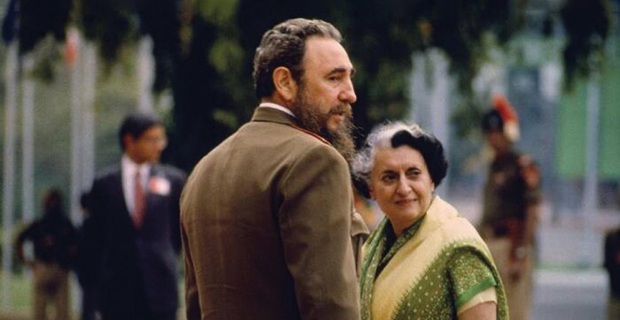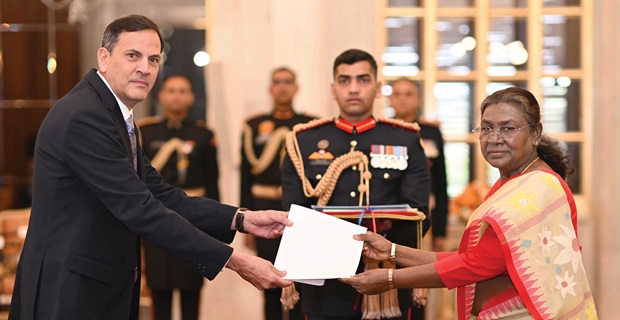India-Cuba Diplomacy Deepens

Cuban Leader Fidel Castro visited India twice, first in 1973 and then in 1983 and met PM Indira Gandhi
At what stage are the negotiations?
The process is ongoing. The first step—political will—is already in place. We have signed Memorandums of Understanding in areas such as health, AYUSH, and science and technology. These agreements set the foundation for business and industry to follow. In particular, we are exploring avenues in biotechnology, where we have more than two decades of collaboration. Cuban firms have partnered with Indian companies like Panacea Biotec to produce life-saving vaccines such as the pentavalent vaccine for children. Together with the WHO, we are promoting global access to these products.
In the pharmaceutical sector, India has become the world’s pharmacy, especially after COVID-19. We would like India to become the principal supplier of raw materials for our own pharmaceutical industry, which already produces over 80% of the medicines used in Cuba. Reliable access to raw materials is our current challenge—and India can help us overcome it.
Cuba has excellent products for combating diabetes. Can you elaborate on this area of cooperation?
Certainly. According to the WHO, over 100 million Indians suffer from diabetes, and many are affected by diabetic foot complications, sometimes requiring amputation. Cuba has developed a unique medicine that has been used in over 20 countries to prevent the loss of limbs in such cases. We see a strong opportunity to collaborate with India in producing this medicine locally—not just for Indian patients but for the wider region and global markets as well. It’s a prime example of how our countries can work together for the greater good.
Similarly, what are the prospects for collaboration in the IT and agriculture sectors?
Cuba could serve as a strategic bridge for Indian IT services entering Latin American and Caribbean markets. We have a talented pool of engineers and a dedicated university for informatics and communications. There’s immense scope for joint ventures.
In agriculture, we are offering Indian enterprises the opportunity to lease land in Cuba for up to 20 years. Under such agreements, the produce would be shared, and we would benefit from Indian technology and equipment, which is crucial given our current difficulties due to the US embargo. Indian companies could improve Cuban food security while gaining a foothold in international exports. It’s a win-win proposition.
Why do you want agriculturalists to go to your country and do the farming there?
Due to the long-standing US blockade, acquiring essential agricultural equipment has been a persistent challenge for us. We believe Indian agricultural companies could bring both the machinery and expertise necessary to significantly improve our domestic food production and, at the same time, access export markets. These joint ventures would benefit both nations and strengthen our agricultural ties.











Comments.